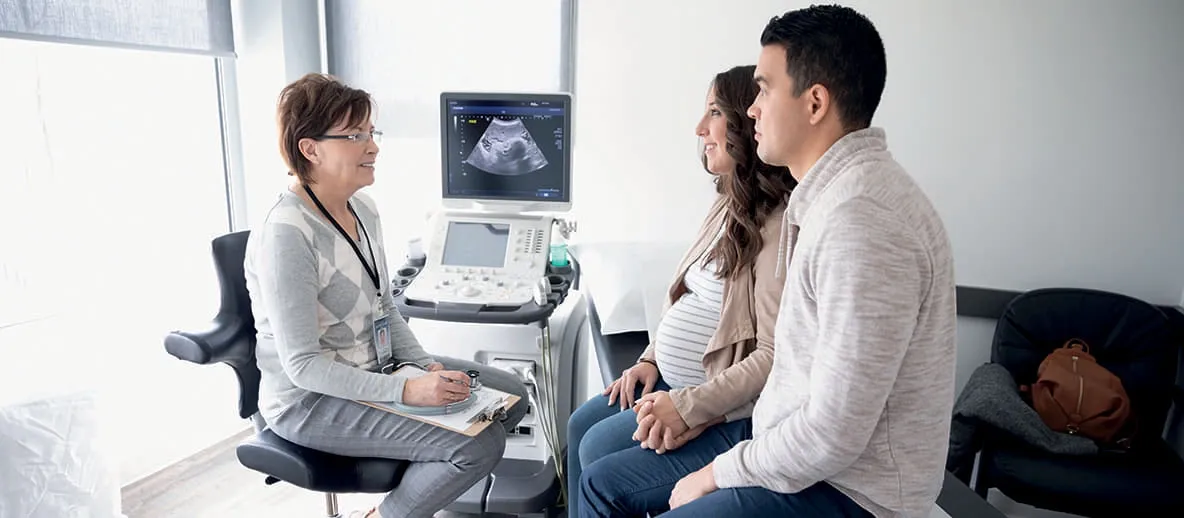- For Providers
- For Brokers
Particuliers et familles
- Santé pour particuliers à l’international
- Particuliers espagnols
Employeurs
- Santé pour les PME
- Santé pour les grandes entreprises
- Employeurs espagnols
OIG/ONG
- Santé pour les OIG/ONG
Particuliers et familles
Qui est couvert par notre assurance santé
- Expatriés
- Familles
- Étudiants
- Travailler à l’étranger
- Retraités
- Plus de 60 ans
Principales destinations que nous couvrons
Assurance santé pour expatriés
- Hub Dans les coulisses de la santé des expatriés
- Guide de l’assurance santé internationale pour les retraités
- Un guide de l’assurance santé internationale pour les personnes travaillant à l’étranger
- Explications sur l’assurance santé pour les expatriés
- Guide de l’assurance santé internationale pour les étudiants
- Déménager à l’étranger pendant votre grossesse
Choisir une assurance santé
- Comparaison entre assurance voyage et assurance santé internationale
- Choisir une assurance santé
Guides nationaux
- Guides nationaux
FAQ
- Foire aux questions
Employeurs
Global Health Benefits Europe
- Assurance santé pour employeurs
- Cigna Inspire Plan
2 - 149 employés
- Assurance santé internationale
Grandes entreprises
- Assurance santé d’entreprise
Ressources pour les membres
- Documents et informations utiles
- U.S Prescription Drug List
Client
- Connexion employeurs
OIG/ONG et gouvernements
Représentants du gouvernement
- Représentants du gouvernement
Ressources pour les membres
- Foire aux questions
- Cigna Health Benefits App
Client
- Connexion employeurs
Sujets
Particuliers et familles
-
Types de couverture
-
Dans quel pays notre couverture médicale est-elle disponible
-
Ressources
- Hub Dans les coulisses de la santé des expatriés
- Guide de l’assurance santé internationale pour les retraités
- Un guide de l’assurance santé internationale pour les personnes travaillant à l’étranger
- Explications sur l’assurance santé pour les expatriés
- Guide de l’assurance santé internationale pour les étudiants
- Déménager à l’étranger pendant votre grossesse
- Comparaison entre assurance voyage et assurance santé internationale
- Choisir une assurance santé
- Guides nationaux
- Foire aux questions
-
Pour les membres
Employeurs
OIG/ONG et gouvernements
Blog santé
For Brokers
International health insurance with maternity cover
Assurance santé internationale avec couverture maternité
Déménager à l’étranger est une décision importante qui peut être encore plus intimidante si vous êtes enceinte. Voyons comment vous pouvez mieux vous préparer à accoucher à l’étranger et vous assurer que vous bénéficiez de la meilleure assurance santé avec une couverture maternité.
Éléments à prendre en compte lorsque vous déménagez à l’étranger alors que vous êtes enceinte
Si vous déménagez à l’étranger alors que vous êtes enceinte, il faut que le processus se déroule aussi facilement et sans stress que possible. Certains facteurs doivent être pris en compte avant de déménager alors que vous êtes enceinte.
Il est important de penser aux :
Restrictions de vol
Bien que les voyages en avion soient généralement considérés comme sûrs pendant les grossesses sans complications, il existe certaines restrictions et certains risques. La plupart des compagnies aériennes commerciales vous autorisent à voyager jusqu’à 36 semaines pour les grossesses simples ou jusqu’à 32 semaines pour les grossesses multiples (par exemple des jumeaux).
Prendre l’avion pendant les 12 premières semaines de grossesse est considéré comme un risque, car les fausses couches sont plus fréquentes à ce stade.
Consultez toujours votre médecin ou votre sage-femme avant le départ pour vous assurer que vous pouvez prendre l’avion en toute sécurité. Certaines compagnies aériennes exigent un justificatif écrit [1].
Voyager entre le quatrième et le sixième mois de grossesse est généralement considéré comme la meilleure période, car vous êtes à la moitié de votre grossesse.
Vaccins nécessaires pour voyager pendant la grossesse
Se faire vacciner pendant la grossesse peut être risqué, mais si le risque d’infection l’emporte sur celui de la vaccination à virus vivant, il faut l’envisager. Avant de vous rendre dans votre nouveau pays, demandez à votre médecin généraliste ou à votre sage-femme si vous pouvez vous faire vacciner pour le voyage.
Les vaccins à virus non vivant (inactif) peuvent être utilisés sans danger pendant la grossesse. Il s’agit notamment des vaccins suivants [2] :
- DTP
- Coqueluche
- Hépatite A
- Hépatite B
- Typhoïde intramusculaire
- Rage
Soins de maternité dans votre pays de destination
Avant votre départ, prenez le temps de vous renseigner sur les soins de maternité disponibles dans votre pays de destination. Vous aurez l’esprit tranquille en sachant que vous et votre bébé recevrez les soins dont vous avez besoin dès votre arrivée.
Tenez compte des éléments suivants :
- Où trouver les soins disponibles ?
- Comment s’inscrire pour recevoir des soins ?
- Faut-il payer les visites médicales ?
- Serez-vous couverte par l’assurance maternité ?
- Combien de temps à l’avance devez-vous prendre rendez-vous ?
- Existe-t-il des barrières linguistiques ?
Trouver un nouveau médecin
Trouver un médecin près de l’endroit où vous pensez vous installer et réfléchissez à comment vous allez vous rendre à la clinique pour vos rendez-vous. Le transport public est-il disponible ou devrez-vous conduire ? Vous devez vous assurer qu’il ne vous sera pas difficile de vous rendre là où vous devez aller.
Examinez également les avis pour vous assurer que le service que vous avez choisi répondra à vos besoins.
Une fois que vous aurez choisi votre nouveau professionnel de santé, prenez rendez-vous bien avant votre arrivée.
Préparez vos documents
Si possible, rassemblez vos dossiers médicaux et vos documents avant votre départ, en particulier ceux relatifs à votre grossesse. Ils seront ainsi facilement accessibles par votre nouveau médecin. De nos jours, il est souvent possible de le faire électroniquement.
Vous déménagez dans un pays où l’on parle une autre langue ? Dans ce cas, il peut être utile de faire traduire vos documents.
Planification concrète de la naissance
Enfin et surtout, vous devrez planifier votre accouchement. Prenez en compte des facteurs tels que :
- Comment déclarer la naissance de votre bébé ?
- Comment obtenir un acte de naissance ?
- Votre bébé aura-t-il une double nationalité ?
- Existe-t-il des groupes de soutien locaux pour les nouveaux parents ?
- L'organisation de votre congé maternité au travail (le cas échéant)
- Les possibilités de garde d’enfants pour l’avenir
L’organisation de ces éléments contribuera à faciliter votre déménagement et à réduire les tracas à votre arrivée.
Trouver la bonne assurance santé internationale avec une couverture maternité
Pour que votre bébé et vous-même receviez des soins appropriés, il est essentiel que vous trouviez la bonne assurance santé internationale avec une couverture maternité.
La plupart du temps, la couverture maternité n’est pas un type d’assurance à part entière. Il s’agit généralement d’un complément à l’assurance santé classique pour expatriés ou pour les familles. Vous pouvez généralement choisir d’ajouter une couverture maternité avant de souscrire une assurance santé.
Vous devez réfléchir à ce que vous attendez exactement de votre assurance maternité, car cela peut varier d’une personne à l’autre. Cependant, voici quelques caractéristiques communes que vous devriez chercher à inclure dans votre couverture :
Soins prénatals
Prendre soin de vous avant l’accouchement peut vous aider à prévenir les problèmes pendant et après l’accouchement. La couverture prénatale peut inclure des services tels que des analyses de sang, des échographies et des rendez-vous chez le médecin [3].
Accouchement naturel
Votre assurance maternité doit inclure les frais d’hospitalisation nécessaires pour les accouchements naturels.
Complications à l’accouchement
Bien que l’idéal soit toujours un accouchement sûr et sans complication, mieux vaut prévenir que guérir. Des complications peuvent survenir pendant l’accouchement, ce qui peut être encore plus stressant dans un pays nouveau et inconnu. Une couverture qui inclut les complications à l’accouchement peut aider à couvrir les coûts et à assurer une tranquillité d’esprit.
Postnatal/Nouveau-né
Il faut vous assurer que vous et votre nouveau-né êtes pris en charge après l’accouchement. Il peut s’agir de services tels que le soutien à l’allaitement, les conseils, les vaccinations et les bilans de santé de votre bébé [4].
Aide financière pour les produits de puériculture
Certains prestataires peuvent offrir une aide financière pour divers produits et services de maternité.
Vous souhaitez en savoir plus sur les possibilités de s’installer à l’étranger pendant votre grossesse ? Consultez notre guide utile sur les soins de grossesse à l’étranger.
L’assurance santé internationale avec une couverture maternité de Cigna Healthcare
Cigna Healthcare offre des assurances santé internationales haut de gamme pour répondre à vos besoins en matière de soins de santé, où que vous alliez. Avec une couverture locale et mondiale, nous disposons de plus de 2,2 million d’hôpitaux et de professionnels de santé à votre disposition.
De plus, vous pouvez accéder à un soutien, des ressources et des outils pour votre bien-être physique, mental et émotionnel. Vous pouvez facilement ajouter l’assurance maternité à votre couverture. Ainsi, vous et votre bébé pourrez bénéficier des soins médicaux dont vous avez besoin si vous décidez de partir à l’étranger.
Découvrez plus en détail l’assurance santé internationale de Cigna.
FAQ
Quand ne faut-il pas prendre un vol international quand on est enceinte ?
Il est généralement conseillé d’éviter de prendre des vols internationaux après la 28e et la 35e semaines, en fonction de votre situation personnelle. Pour les vols intérieurs, il n’est pas recommandé de voyager après la 36e semaine.
Consultez toujours votre professionnel de santé avant de décider quand voyager lorsque vous êtes enceinte, en particulier si votre grossesse est considérée comme à risque [5].
Puis-je partir à l’étranger pendant ma grossesse ?
Vous devriez pouvoir partir à l’étranger lorsque vous êtes enceinte si cela ne présente aucun danger pour vous et votre bébé. Si vous avez dépassé votre 28e semaine de grossesse, certaines compagnies aériennes peuvent vous demander de fournir un certificat de votre professionnel de santé attestant que vous pouvez prendre l’avion en toute sécurité.
Déménager à l’étranger peut être un processus stressant : gardez cela à l’esprit lorsque vous prendrez votre décision.
Si vous décidez de partir à l’étranger alors que vous êtes enceinte, veillez à souscrire une assurance santé avec une couverture maternité.
Puis-je partir à l’étranger si je suis enceinte de sept mois ?
Si vous êtes enceinte de sept mois, vous devriez pouvoir partir à l’étranger si votre professionnel de santé estime que vous pouvez le faire en toute sécurité.
Veuillez noter que certaines compagnies aériennes peuvent demander à votre médecin de leur fournir des documents attestant que vous pouvez voyager en toute sécurité à ce stade.
Peut-on prendre un vol international en toute sécurité lorsqu’on est enceinte de 30 semaines ?
Les vols internationaux à ce stade sont généralement considérés comme sûrs, mais vous devez également vérifier auprès de votre médecin qu’il n’y a pas de risque significatif pour vous ou votre bébé. Il se peut que vous deviez en fournir la preuve à la compagnie aérienne pour pouvoir voyager.
Contactez-nous
Que vous souhaitiez parler à notre équipe des ventes ou obtenir une aide générale si vous êtes déjà membre de Cigna, nous vous fournirons les bonnes informations.
CoordonnéesLiens Utiles
© 2025 Cigna Healthcare. Tous droits réservés.
*Please note, this is a representation of the benefits available and does not contain the terms, conditions, and exclusions specific to each benefit. The benefits may be subject to change. Some benefits may be part of an optional module. Please see the Customer Guide for full details.
Ce site Internet est fourni par Cigna European Services (UK) Limited, société constituée en Angleterre et au Pays de Galles, ayant son siège social au 13th Floor, 5 Aldermanbury Square, London EC2V 7HR, et numéro enregistré 00199739. Le nom « Cigna Healthcare », le logo et autres marques Cigna Healthcare appartiennent à Cigna Intellectual Property, Inc. que Cigna et les sociétés du groupe Cigna sont autorisées à utiliser aux termes d’une licence.
En cliquant sur ces liens, vous quitterez Cignaglobal.com. Cigna Healthcare ne contrôle pas le contenu ou les hyperliens des sites reliés.



